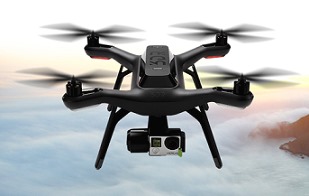STM32F405xx과 STM32F407xx의 스펙 요약입니다.
여기서 STM32F407xx는 STM32F405xx과 스펙이 동일하지만, Ethernet 그리고 카메라 인터페이스 기능이 더 추가된 것이며 'xx'부분은 여기에 소개된 것처럼 순서대로 핀 개수, 플레시 메모리 사이즈, 패키지 타입, 온도 범위 그리고 기타 옵션을 나타낸 것입니다. 더 자세한 정보를 위해서 다음 데이터시트를 참조하시기 바랍니다.
http://www.mouser.com/ds/2/389/stm32f405rg-956214.pdf
Features
• Core: ARM 32-bit Cortex-M4 CPU with FPU, Adaptive real-time accelerator (ART Accelerator) allowing 0-wait state execution from Flash memory, frequency up to 168 MHz, memory protection unit, 210 DMIPS/1.25 DMIPS/MHz (Dhrystone 2.1), and DSP instructions
• Memories
• Up to 1 Mbyte of Flash memory
• Up to 192+4 Kbytes of SRAM including 64-Kbyte of CCM (core coupled memory) data RAM
• Flexible static memory controller supporting Compact Flash, SRAM, PSRAM, NOR and NAND memories
• LCD parallel interface, 8080/6800 modes
• Clock, reset and supply management
– 1.8 V to 3.6 V application supply and I/Os
– POR, PDR, PVD and BOR
– 4-to-26 MHz crystal oscillator
– Internal 16 MHz factory-trimmed RC (1% accuracy)
– 32 kHz oscillator for RTC with calibration
– Internal 32 kHz RC with calibration
• Low-power operation
– Sleep, Stop and Standby modes
– VBAT supply for RTC, 20×32 bit backup registers + optional 4 KB backup SRAM
• 3×12-bit, 2.4 MSPS A/D converters: up to 24 channels and 7.2 MSPS in triple interleaved mode
• 2×12-bit D/A converters
• General-purpose DMA: 16-stream DMA controller with FIFOs and burst support
• Up to 17 timers: up to twelve 16-bit and two 32-bit timers up to 168 MHz, each with up to 4 IC/OC/PWM or pulse counter and quadrature(incremental) encoder input
• Debug mode
– Serial wire debug (SWD) & JTAG interfaces
– Cortex-M4 Embedded Trace Macrocell
• Up to 140 I/O ports with interrupt capability
– Up to 136 fast I/Os up to 84 MHz
– Up to 138 5 V-tolerant I/Os
• Up to 15 communication interfaces
– Up to 3 × I2C interfaces (SMBus/PMBus)
– Up to 4 USARTs/2 UARTs (10.5 Mbit/s, ISO7816 interface, LIN, IrDA, modem control)
– Up to 3 SPIs (42 Mbits/s), 2 with muxed full-duplex I2S to achieve audio class accuracy via internal audio PLL or external clock
– 2 × CAN interfaces (2.0B Active)
– SDIO interface
• Advanced connectivity
– USB 2.0 full-speed device/host/OTG controller with on-chip PHY
– USB 2.0 high-speed/full-speed device/host/OTG controller with dedicated DMA, on-chip full-speed PHY and ULPI
– 10/100 Ethernet MAC with dedicated DMA: supports IEEE 1588v2 hardware, MII/RMII
• 8- to 14-bit parallel camera interface up to 54 Mbytes/s
• True random number generator
• CRC calculation unit
• 96-bit unique ID
• RTC: subsecond accuracy, hardware calendar
다음은 STM32F4 시리즈 Cortex-M4 프로그래밍 매뉴얼입니다.
STM32F4 Series Cortex®-M4 programming manual
※ Cortex-M4 = Cortex-M3 + FPU + DSC + 성능 향상
FPU(Floating Point Unit)를 내장하지 않을 경우, 라이브러리를 불러와 소프트웨어적으로 emulation 하게 됩니다. 이 경우에 대략 하드웨어보다 8배의 연산 시간의 소요되며, 이를 내장하지 않은 Cortex-M3에서 처럼 고정 소수점(fixed point)을 대신 사용하는 경우 2배의 연산 시간이 요구되지만 사용이 매우 까다롭다는 것입니다. 사용자가 특별히 부동 소수점 연산기(FPU)를 직접 다룰 필요는 없습니다.
DSC(Digital Signal Controller)는 디지털 필터인 FIR, IIR 필터 구현이 용이하고, SIMD 명령어의 구현으로 이는 '하나의 명령어로 여러개의 데이터를 처리'하는 것으로, Open GL과 같은 그래픽 데이터 처리(벡터 연산), 멀티미디어 코덱 등에서 성능이 향상됩니다.



